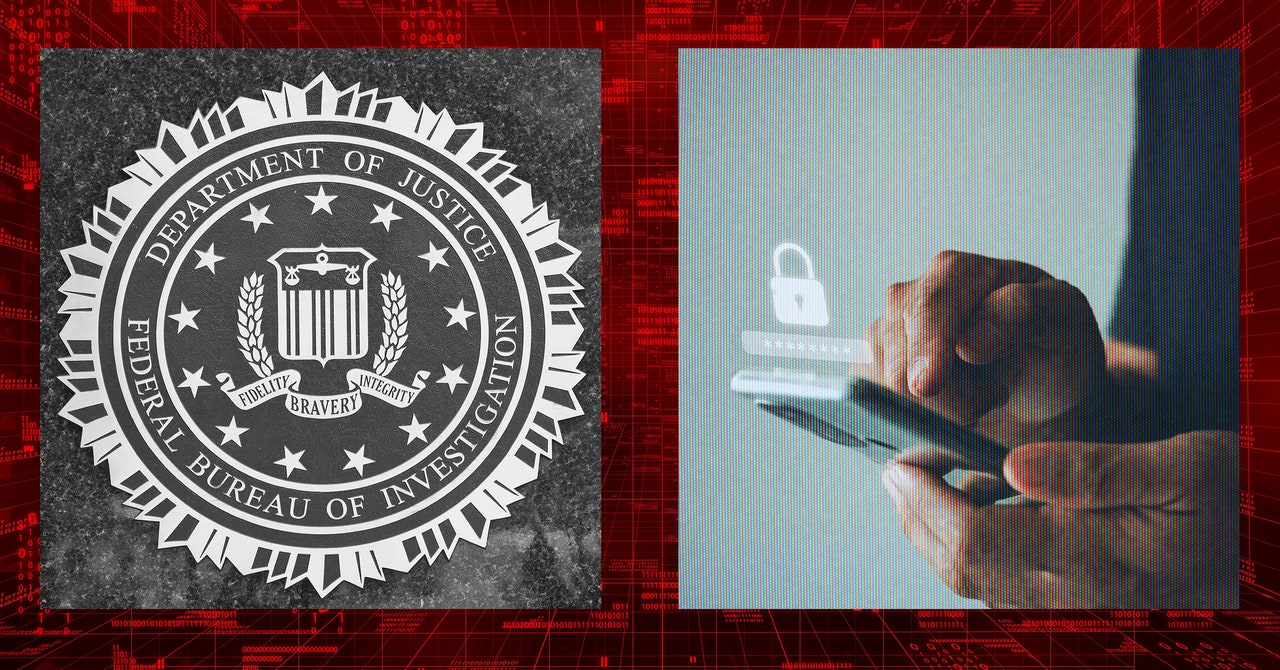US officials recommend encryption apps amid Chinese telecom hack

A consortium of World legislation enforcement businesses, led by Britain’s Nationwide Crime Company, introduced a takedown operation this week in opposition to two main Russian money-laundering networks that course of billions of {dollars} annually in additional than 30 international locations world wide. WIRED had unique entry to the investigation, which revealed new and disturbing laundering strategies, significantly schemes to straight trade cryptocurrency for money. As the US authorities struggles to handle China’s “Salt Storm” digital espionage marketing campaign on American telecommunications, two senators this week demanded that the Protection Division examine its failure to safe its personal communications and handle identified vulnerabilities within the US telecommunications infrastructure. In the meantime, Sign Basis president Meredith Whittaker spoke at WIRED’s The Massive Interview occasion in San Francisco this week about Sign’s enduring dedication to bringing end-to-end encrypted non-public communications providers to folks world wide, no matter local weather. geopolitical.
A brand new smartphone scanner from cellular machine safety agency iVerify can rapidly and simply detect spyware and adware and has already flagged seven gadgets contaminated with the invasive Pegasus surveillance software. Programmer Micah Lee constructed a software that can assist you save and delete your X posts after he offended Elon Musk and was banned from the platform. And privateness advocate Nighat Dad is preventing to guard ladies from digital harassment in Pakistan after escaping an abusive marriage.
The US Federal Commerce Fee is concentrating on information brokers it says illegally tracked protesters and US navy personnel, however enforcement efforts look set to pull on beneath the Trump administration. Equally, the US Client Monetary Safety Bureau has drawn up a technique to impose new oversight on predatory information brokers, however the brand new administration could not proceed the initiative. Some new legal guidelines are lastly coming world wide in 2025 that can attempt to repair the dysfunctional digital promoting trade, however malicious advertisements are nonetheless thriving world wide and proceed to play a serious function in fraud. international.
And there may be extra. Every week, we spherical up safety and privateness information that we have not lined in depth ourselves. Click on the headlines to learn the complete tales. And keep secure on the market.
Keep in mind how the US federal authorities spent a lot of the final three a long time periodically decrying the hazards of sturdy, freely obtainable encryption instruments, arguing that as a result of they allow criminals and terrorists, they need to be declared unlawful. outlawed or required to implement authorities authorized backdoors? Beginning this week, the federal government will now not have the ability to make that argument with out stating privateness advocates a couple of separate telephone name through which two officers advisable Individuals use these very encryption instruments to guard in opposition to an enormous breach the continued hacking of US telecoms by Chinese language hackers.
In a briefing with reporters in regards to the breach of no fewer than eight telephone firms by Chinese language state-sponsored espionage hackers often called Salt Storm, officers from the Cyber Safety and Infrastructure Safety Company (CISA) and the FBI each stated than within the midst of the nonetheless uncontrolled state of affairs. infiltration of US telecommunications which have uncovered telephone calls and messages, Individuals should use encryption functions to guard privateness. “Encryption is your buddy, whether or not it is in textual content messages or when you have the capability to make use of encrypted voice communication,” stated Jeff Greene, CISA’s assistant govt director for cybersecurity. (Sign and WhatsApp, for instance, encrypt calls and messages end-to-end, although officers didn’t title any particular apps.)
The advice amid what one senator has referred to as “the worst telecom hack in our nation’s historical past” represents a hanging shift from earlier US officers’ rhetoric on encryption, and specifically the FBI’s repeated requires behind-the-scenes entry in encryption. The truth is, it was exactly one of these government-approved eavesdropping functionality requirement for US telecoms that the Salt Storm hackers in some circumstances exploited to entry Individuals’ communications.
The hacking group often called Secret Blizzard, Snake or Turla, extensively believed to be working for the Russian intelligence company FSB, is understood for utilizing among the most subtle hacking strategies ever seen to spy on its victims. One of many methods that has now turn into his signature transfer: hacking into different hackers’ infrastructure to sneak again into their entry. This week, Microsoft menace intelligence researchers and safety agency Lumen Applied sciences revealed that Turla gained entry to the servers of a Pakistan-based hacker group and used its visibility into victims’ networks to spy on authorities, navy and navy targets. of intelligence in India and Afghanistan of curiosity to the Kremlin. In some circumstances, Turla hijacked Pakistani hackers’ entry to put in their very own malware, whereas in different circumstances they seem to have used the opposite group’s instruments for even better theft and denial. The incident marks the fourth identified time since 2017, when it broke into the command and management servers of an Iranian hacker group, that Turla has offloaded one other hacker group’s infrastructure and instruments at no cost, in response to Lumen.
The Russian authorities is understood for turning a blind eye to cybercrime – till it does not. This week, 15 convicted members of the infamous Hydra darkish internet market realized the boundaries of that tolerance after they reportedly acquired jail sentences starting from 8 years to 23 years, in addition to an unprecedented life sentence for the positioning’s creator Stanislav Moiseyev . Earlier than it was taken down two years in the past in a legislation enforcement operation led by IRS felony investigators within the US and Germany’s BKA police company, Hydra was a novel on-line darkish market, one which served not solely as the biggest on-line bazaar within the post-Soviet world. for narcotics, but in addition a serious money-laundering machine for crimes together with ransomware, fraud and sanctions evasion. In whole, Hydra has enabled greater than $5 billion in soiled cryptocurrency transactions since 2015, in response to crypto-tracking agency Elliptic.
Russian legislation enforcement charged and arrested a software program developer final week who’s suspected of a number of contributions to a number of ransomware teams, together with constructing malware to extort cash from companies and different targets. The suspect is claimed to be Mikhail Matveev, aka “Wazawaka”, who has labored as an affiliate with ransomware gangs reminiscent of Conti, LockBit, Babuk, DarkSide and Hive. Social media studies point out that Matveev confirmed his indictment and stated he has been launched from legislation enforcement custody on bail.
Russia’s lawyer basic didn’t title Matveev, however outlined costs final week in opposition to a 32-year-old hacker beneath Article 273 of Russia’s Prison Code, which prohibits the creation or use of malware. The transfer got here as Russia gave the impression to be sending some sort of message about its tolerance for cybercrime with the sentencing of the workers of darkish internet market Hydra, together with a life sentence for its administrator. In 2023, the US authorities sued and sanctioned Matveev.
In a disturbing improvement (one we did not cowl final week as a result of Thanksgiving vacation), Reuters reporters have revealed that the FBI is now investigating a lobbying consultancy employed by Exxon over the agency’s function in a hacking and leaking operation that focused local weather change activists. DCI Group, a lobbying agency employed on the time by Exxon, allegedly offered a listing of focused activists to a non-public investigator, who then gave mercenary hackers a hacking operation in opposition to these targets. After the non-public investigator — an Israeli man named Amit Forlit, who was later arrested in London and faces hacking costs within the U.S. — allegedly gave the hacked materials to the DCI, he uncovered the activists’ inner communications about local weather change lawsuit in opposition to Exxon within the media, Reuters. found. The FBI, in response to Reuters, has decided that the DCI additionally first noticed that materials at Exxon earlier than disclosing it. “These paperwork had been used straight by Exxon to go after me with all weapons blazing,” a lawyer who works with the activist group the Heart for Local weather Integrity informed Reuters. “It turned my life the other way up.”
Exxon has denied data of any hacking exercise, and DCI informed Reuters in an announcement that “we direct all of our staff and consultants to adjust to the legislation.”
(tagsTranslate)safety overview(s)cybersecurity(s)hacking(s)russia(s)safety




